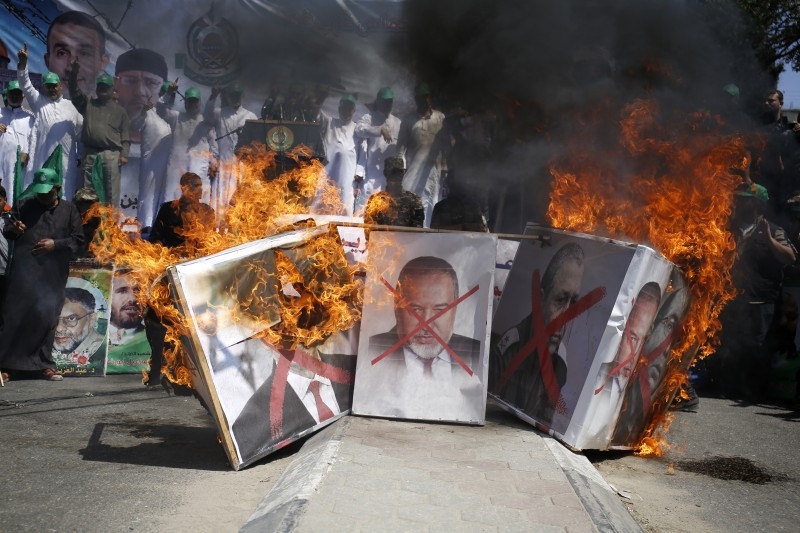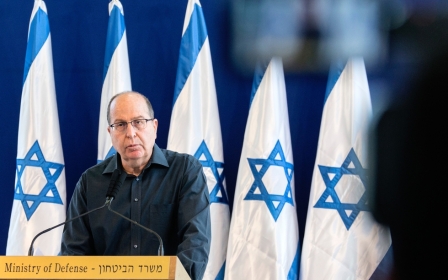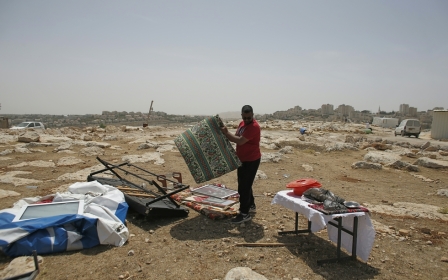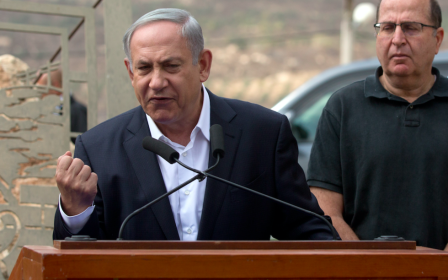New Israeli death penalty would apply to non-Jews only: Likud source

A new law to execute “terrorists” in Israel will effectively apply only to non-Jews, according to a source in the Likud party.
Incoming Defence Minister Avigdor Lieberman has made the restoration of the death penalty for terror attacks a sticking point for his far-right Yisrael Beiteinu party to join the government.
However, according to a Likud source quoted by Haaretz, the new law would apply only to people tried in military courts.
As Palestinians are prosecuted in military courts while Jews accused of similar crimes are prosecuted in civil courts, the death penalty would in practice apply only to Palestinians.
The move to restore the death penalty, which has never been officially abolished but has not been used since 1962, has proved highly controversial in Israel.
Former attorney general Yehuda Weinstein on Thursday called on his successor, Avichai Mendelblit, to oppose the proposals.
"There's nothing like it in the world,” he told Haaretz. “There are no countries that added the death penalty to the book of law, only ones that took it off.
“It's not practical in terms of deterrence, since these are criminals who anyhow act out of an ideological motive and aren’t afraid of death. It's also not moral.”
However, other right-wing politicians in Israel have backed calls for the death penalty to be used again.
Ayelet Shaked, Israeli justice minister and member of the far-right Jewish Home party, said last July that she "found out that there's a death penalty for terrorists and that it was last handed out in 1994. Since then the military prosecution has not requested a death penalty, but it can be requested, and the military court can give it according to the law.
"Unfortunately, the sentence of the terrorist prosecuted in 1994 was commuted to a life sentence, and he was released in the Shalit deal, but the penalty exists and can be carried out," she added, according to Haaretz. Israeli soldier Gilad Shalit was part of a prisoner-exchange deal In 2011 after being held captive by Hamas for five years.
Prime Minister Benjamin Netanyahu and Lieberman may sign the coalition agreement on Sunday evening.
Netanyahu had also been in talks with the leader of the Labor Party, Isaac Herzog, but those negotiations broke down when news leaked that Netanyahu was thinking of bringing Lieberman back into the fold in a move that Israeli media agrees would create the “most right-wing government” Israel has known.
Lieberman has served in previous coalitions with Netanyahu but declined to join his coalition last year.
Yaalon had been at loggerheads with Netanyahu over his insistence made in a speech last week that senior officers be encouraged to "speak their mind".
On Thursday, he made public comments that he was "surprised" by a growing "loss of moral compass on basic questions" in Israeli society.
"We need to steer the country in accordance with one's conscience and not whichever way the wind is blowing," Yaalon said.
According to reports in the Israeli press, Netanyahu called Yaalon on Thursday to tell him to ignore media speculation about Lieberman, insisting that nothing was set in stone, although it appears Yaalon decided to jump ship before he was pushed.
Earlier reports claimed that Netanyahu was considering offering the retired lieutenant general the foreign ministry as a consolation, but that the offer was never made.
Yaalon's resignation paves the way for right-wing activist Yehuda Glick to enter the Knesset as he is the next candidate on the Likud list that decides who becomes an MP.
Glick is a leading figure in the Temple Mount movement that seeks to have Jewish prayers in the al-Aqsa mosque compound, with Palestinians scared the aim is to completely level Muslim holy sites to make way for a Jewish Third Temple that many believe was prophesied by scripture.
The compound is under Jordanian control, and non-Muslim prayers are strictly forbidden there, although growing numbers of Israelis have been skirting the rules in a move deemed by by Palestinians to be highly inflammatory.
Glick survived an assassination attempt by a Palestinian assailant who was angered by his views on Temple Mount in 2014.
New MEE newsletter: Jerusalem Dispatch
Sign up to get the latest insights and analysis on Israel-Palestine, alongside Turkey Unpacked and other MEE newsletters
Middle East Eye delivers independent and unrivalled coverage and analysis of the Middle East, North Africa and beyond. To learn more about republishing this content and the associated fees, please fill out this form. More about MEE can be found here.




